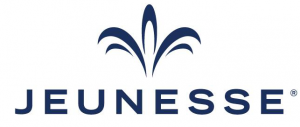 In October, a billion dollar class action lawsuit was filed against Jeunesse, alleging that the multi-level marketing company (MLM) is actually a pyramid scheme. Truth in Advertising summarizes the lawsuit:
In October, a billion dollar class action lawsuit was filed against Jeunesse, alleging that the multi-level marketing company (MLM) is actually a pyramid scheme. Truth in Advertising summarizes the lawsuit:
The lawsuit, which was filed Oct. 12 in California federal district court by three current distributors and one former distributor, names 15 defendants and 100 unknown defendants that plaintiffs allege are responsible for the injuries and harm they incurred. Named defendants include Kim Hui, who held the second-highest distributor rank in Jeunesse as a Presidential Diamond director, and her company US Global System (USGS), as well as four Diamond directors in Hui’s downline, May Chang, Yvonne Yen, Samson Li and Lisa Wang.
The lawsuit says Jeunesse Global makes tons of money in Hong Kong and China by exploiting Chinese American distributors, and the company’s “… conduct violates foreign laws and constitutes money laundering and tax evasion.” Truth in Advertising reports:
The complaint most likely implicates violations of foreign law because in 2005, the Chinese government enacted a law called Regulation of Direct Sales and Regulation on Prohibition of Chuanxiao (Chuanxiao roughly translates to MLM). According to this regulation, direct sales are permitted in mainland China but MLMs are not. The suit seeks to hold defendants liable for fraudulent business practices, false advertising, and violations of the Federal Racketeer Influenced and Corrupt Organization Act (RICO) and the Foreign Corrupt Practices Act, among other things.
This lawsuit was the latest in a series of class action lawsuits filed against Jeunesse recently. A July 2016 suit alleged that the company is pyramid scheme and there are secret compensation packages. A December 2016 lawsuit alleged that the company is a pyramid scheme and preys on Chinese American Immigrants.
An expert report was filed in plaintiff James Aboltin’s case (the July 2016 suit). The expert is Dr. Stacie A. Bosley, an economist who is well-versed in multi-level marketing and pyramid schemes. She not only does academic research on MLMs and pyramid schemes, she was the FTC’s expert witness in its lawsuit against Vemma Nutrition Company.
The report by Dr. Bosley on Jeunesse says many interesting things, including:
- A pyramid scheme exists when there is a compensation plan that creates a perpetual recruitment chain, in which the vast majority of participants lose money. It also requires the new recruits to recruit others in order to recoup their investment. Earnings are depending on the ability to keep recruiting more people into the scheme.
- The number of people harmed by the pyramid scheme grows exponentially as the organization expands. The most recent people to come into the scheme make up the vast majority of the membership.
- Pyramid schemes can exist embedded in what appears to be a business opportunity, offering a product or service for sale. This is multi-level marketing. Under the Koscot test, an MLM is a pyramid scheme when people pay money for the right to sell a product and the right to receive money for recruiting.
- MLMs can actually sell products and services AND be a pyramid scheme.
- Jeunesse is a pyramid scheme because distributor compensation is overwhelmingly tied to recruitment (and purchases by those recruits) and not product sales. Purchases by distributors are not based on demand by consumers, but by the incentive structure created by the company.
- Examples are given showing how retail sales are downplayed because of the relatively small earnings from that, in favor of recruiting activities
- “Jeunesse distributors are brought into a pay-and-recruit structure that is inherently unfair and deceptive.”
- Income disclosures for 2014 and 2016 are deceptive because they remove certain distributors from the calculations.
- A token system can be used to purchase products for other distributors. “Such a system allows for strategic purposes and enrollment and, as such, has to potential to enable significant pay-to-play activity.”
Dr. Bosley’s overall opinion: “Considering the evidence currently available, it is my expert opinion that Jeunesse is operating a pyramid scheme, disguised as a multilevel marketing organization.
Fun little tidbit: Truth in Advertising has compiled a database of improper income claims being made by Jeunesse distributors. It’s amusing!




I was given an old starter kit of Mary Kay for free and because the person that gave it to me knew how much I like some of the products wants me to give him money now. There’s no lipstick. Just face mask and foundation and cleaners for the face too. What should I do?